As the effects of climate change advance each year, putting Latino/x/e and other vulnerable communities at greater risk of poor health, Familias en Acción continues to prioritize efforts around climate change to support our comunidad.

Over the past year, Familias has continued developing a Promotora de Salud/Community Health Worker (PDS/CHW) climate action curriculum. The Acción Climática team is working alongside the Community Council to inform the curriculum and ensure it is meeting community members where they are at. Our vision is for our communities to thrive and enjoy health, social, and economic well-being in the places we work, play, pray, and commune. This vision includes working with PDS/CHW to strengthen families’ health and resilience from the impacts of climate change; promoting and expanding food equity in our communities; and supporting advocacy and civic engagement for equitable climate justice policies based on the health, social, racial, and economic equity of Latino/x/e communities.
The curriculum goals:
- Build leadership and knowledge of Promotoras de Salud/Community Health Workers in equitable community climate change wellbeing and resilience, family strategies for greenhouse gas reduction and health advocacy for Latino/x/e communities
- Build climate change resilience among Latino/x/e communities through family climate change knowledge, physical and mental wellbeing, emergency preparedness, actions for reducing greenhouse gas emissions and skills for climate action advocacy for PDS/CHWs
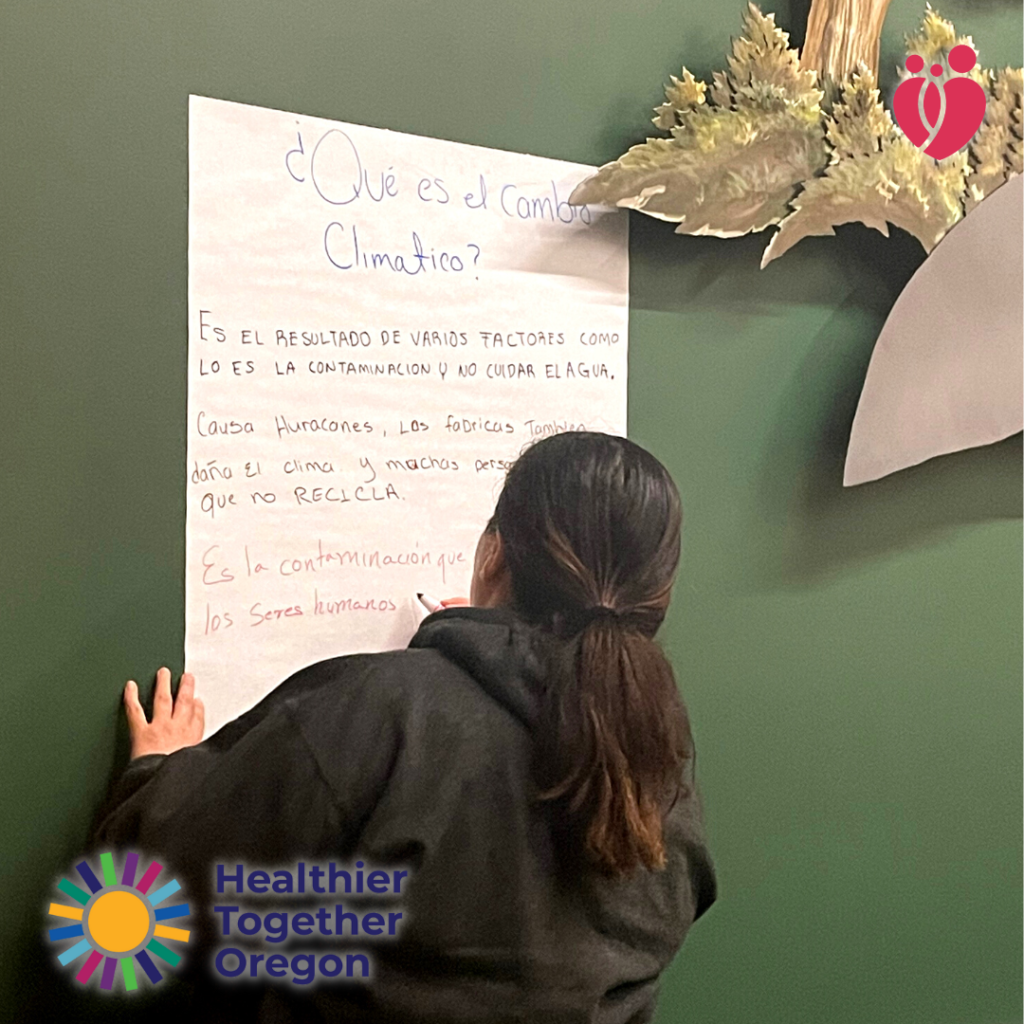
This work aligns with Healthier Together Oregon’s strategy to build climate resilience among priority populations, which is driven by the 2020–2024 State Health Improvement Plan. We are proud to uplift our community members and help them build resilience through culturally specific education and access to resources.
Familias is grateful for our partnerships with Portland Clean Energy Fund (PCEF) and Portland Bureau of Emergency Management (PBEM), who are financially supporting our climate curriculum and climate disaster preparedness workshops.
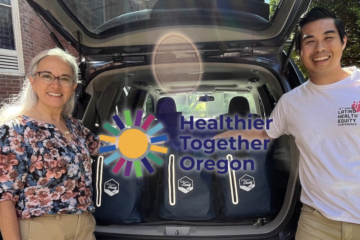
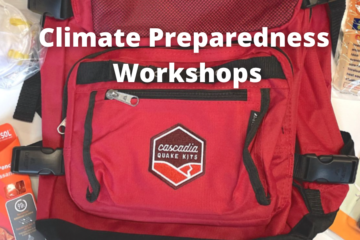
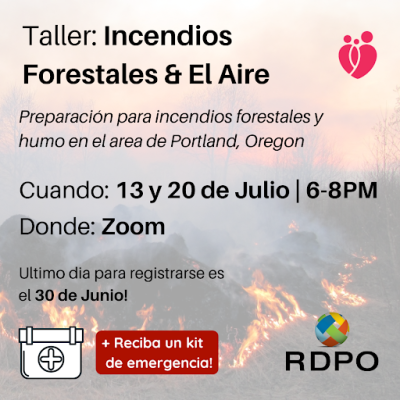

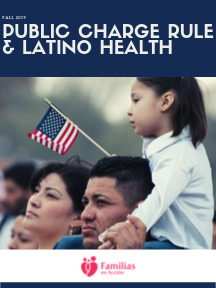
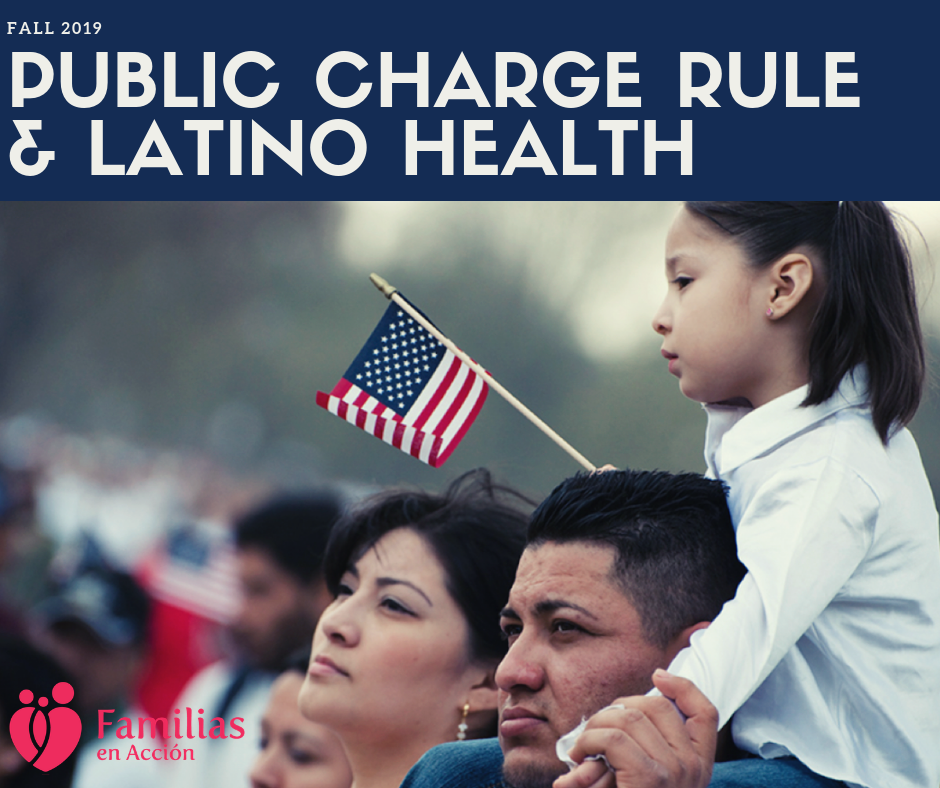
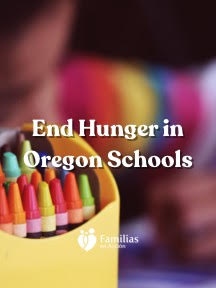
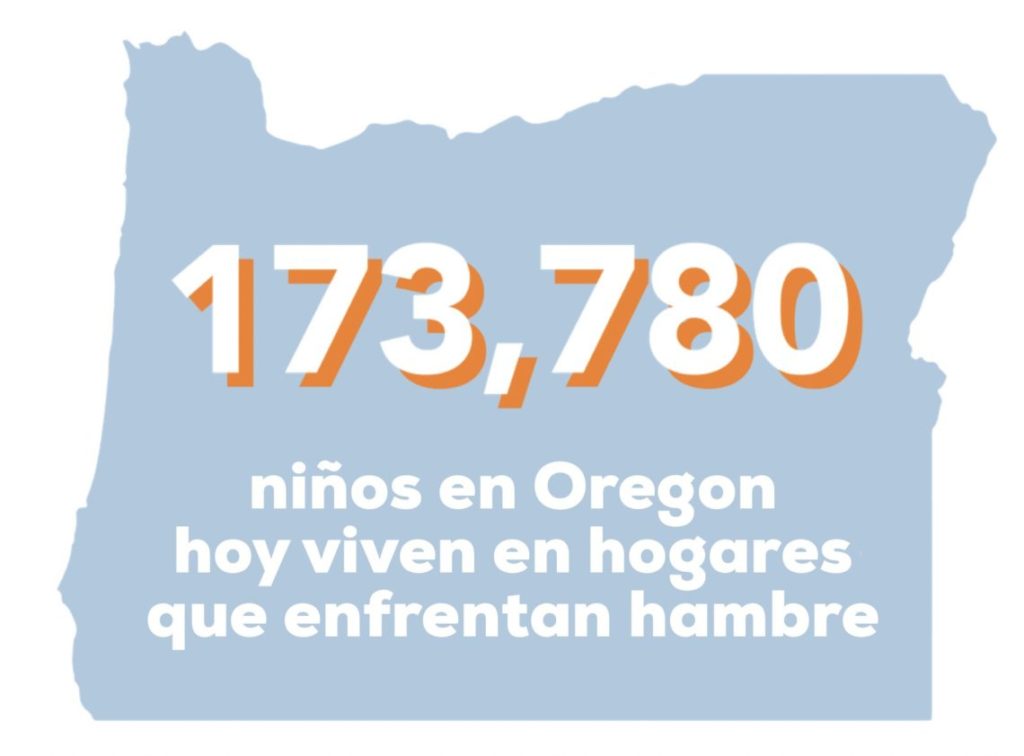
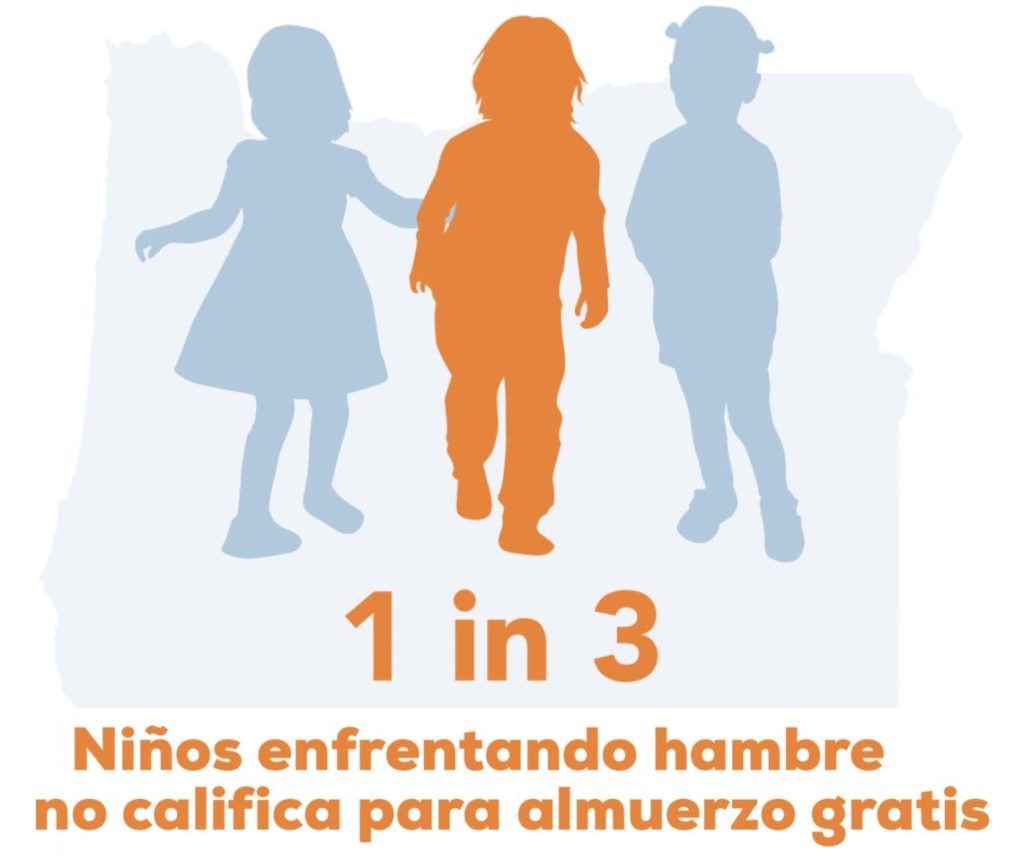
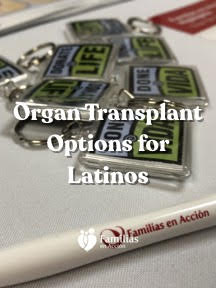

 Care for Older Latino Adults with Chronic Illness – A Palliative Approach
Care for Older Latino Adults with Chronic Illness – A Palliative Approach Care for Latino Children – A Palliative Approach
Care for Latino Children – A Palliative Approach

